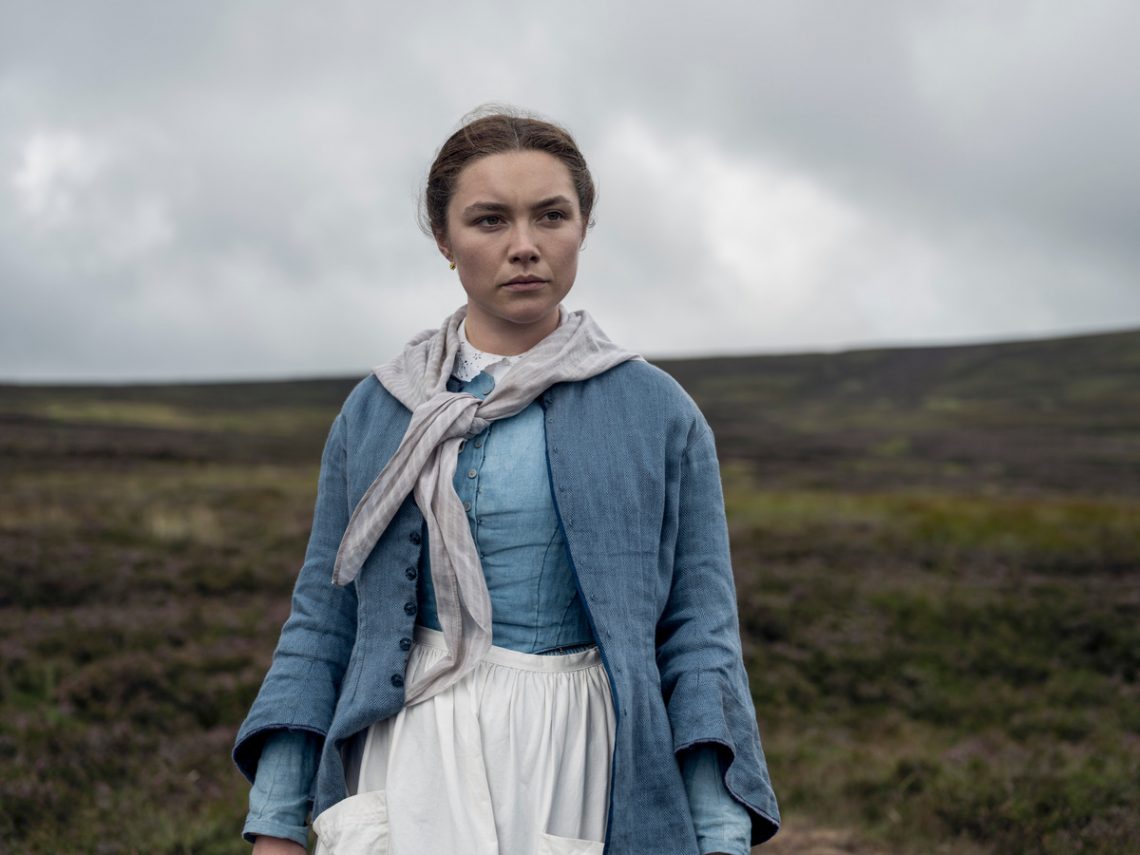Florence Pugh has already starred in one of the most high-profile projects of the year – Don’t Worry Darling – but it isn’t her best film of the year. In fact, Pugh’s finest 2022 effort is set to hit Netflix next month, and it’s a fascinating new period drama called The Wonder.
Sebastian Lelio, a significant figure in Chilean film, found success with his more recent English language features, including his 2017 drama Disobedience, starring Rachel Weisz and Rachel McAdams; and the following year, the comedy-drama Gloria Bell, featuring Julianne Moore. Lelio has now taken a new direction with the moody period drama The Wonder. It resembles the director’s earlier work in one way: it is centred on strong female characters and serves as a showcase for female performances – in this case, particularly the performance of the talented and versatile Florence Pugh, who plays the complex main character, Elizabeth Wright.
Based on the novel by co-scriptwriter Emma Donoghue (best known for her novel Room, which she also adapted for the screen), The Wonder is built around a mystery taking place in a nineteenth-century Irish village. Nurse Elizabeth Wright was trained by Florence Nightingale herself and worked in hospitals and among the wounded in the Crimean War. She is now assigned to a very peculiar job: to observe and monitor an 11-year-old girl. The child, Anna O’Donnell (charmingly played by young actress Kila Lora Cassidy), has been gaining attention as the ‘wonder’ of the title. Her family, and Anna herself, claim she has not eaten for over four months without any ill effects.
From the beginning, Elizabeth finds herself at odds with much of the local populace. Practical and scientific, she dismisses any idea of the miraculous and sees deliberate fraud as the most likely explanation. The town council who have hired her are anxious to find acceptable answers without causing undue disruption; they have diplomatically had Elizabeth alternate shifts with a Catholic nun.
Elizabeth finds little helpful support from the community: the parish priest (Ciaran Hinds) favours the idea that Anna’s prolonged fasting is a miracle; the local physician (Toby Jones) is a hobby scientist who hopes to find an as-yet-undiscovered way of receiving nutrition, speculating about concepts like human photosynthesis. In addition, a London journalist (Tom Burke) arrives hoping to find in Anna an interesting newspaper article. Elizabeth struggles to act as an objective observer but also feels she has an ethical duty to save the child from what may be a dangerous or exploitative situation.
The story begins with one mystery – how a child can survive without food – but gradually unfolds into many others. How might Anna be secretly obtaining food, despite being watched constantly? Who is involved in the fraud? Why would young Anna agree to it? Additionally, many of the characters are mysteries in themselves, beginning with Elizabeth. She is impatient with the overt piety and religious rituals in the O’Donnell household, but she has private devotions and rituals of her own, as well as secrets. The plot takes unexpected turns as Elizabeth overcomes grief and mistrust and finds ways to combine faith with science, the personal with the professional, in a desperate and inventive effort to act in the child’s best interests.
The collaboration of the director, novelist Emma Donoghue, and brilliant screenwriter Alice Birch has produced a wonderful, carefully crafted script. The film’s plot, like the original novel, is minimal and quick-paced but mainly centred on the central female characters, their thoughts, feelings, and motives, rather than on external action. While there are moments of intense action and drama, suspense derives mainly from the characters’ need to understand each other, the many factors that interfere with understanding, and the surprising breakthrough that Elizabeth makes possible.
As mentioned earlier, it is a woman-centred story, with men either on the periphery or acting as unhelpful figureheads. The female characters are, most refreshingly, allowed to be fully themselves, nineteenth-century women in many walks of life, neither updated, anachronistically liberated, made more glamorous, less sentimental, or otherwise more palatable to the contemporary viewer. They are seen to be, nevertheless, strong and adaptive in their own unique ways.
The distinctive look of The Wonder, from the naturalistic views of the bleak landscape, to the dim and slightly claustrophobic interior shots, to the misty but touching glimpses of memory or imagination, not to mention the close views of significant interactions between Elizabeth and Anna, is thanks to the work of cinematographer Ari Wegner, whose perfectly fitting camera direction adds a great deal to the film’s mood. Also helpful is the soundtrack by Matthew Herbert, who has worked with Leilo on several other films. But it is the cast and the sensitive direction by the filmmaker that makes possible this singular, highly personal depiction of what might be called either an unusual love story or a beautiful and ingenious rescue tale.
Following a run at the London Film Festival, The Wonder will be released online worldwide starting in mid-November.
